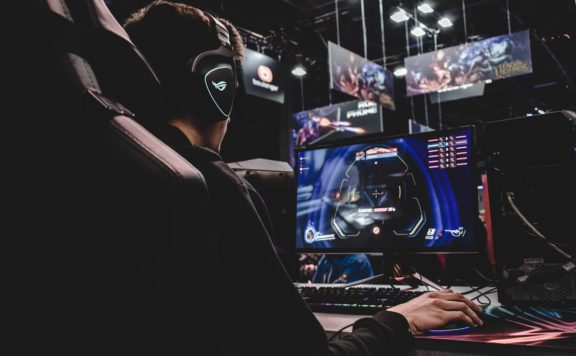One remarkable transition in the fascinating world of the in-game economy in video games has been the move from virtual coins to real-world cryptocurrencies. This transition isn’t confined to the broader financial sector; it’s at the heart of an unexpected field – video games. As game developers grapple with finding new ways to monetize their products, the emergence of in-game economies based on real cryptocurrencies represents a bold leap forward.
From Super Mario’s humble gold coins to the intricate trade systems in massively multiplayer online games, virtual currency has always played a key role in enriching player experience. However, the rise of cryptocurrencies and the integration of blockchain technology into gaming heralds a new era. This era is defined by Crypto Casino – platforms that merge the thrill of gaming with the financial stakes of cryptocurrency trading.
Game Changers: Exploring Crypto’s Influence on Online Interactions
The online gambling industry has witnessed unprecedented growth in the last decade, primarily spurred by technological advancements and changing consumer behaviors. In recent years, a significant trend that has gained ground in this space is the advent and rapid rise of crypto casinos.
Crypto casinos, as the name implies, are online gambling platforms that allow cryptocurrency transactions. These platforms leverage the power of blockchain technology for transactions, ensuring security, transparency, and faster processing times. A core benefit that draws players to these platforms is their anonymous nature, as they allow players to deposit, play, and withdraw without divulging their personal information.
With increasing interest in cryptocurrencies, the economy of crypto casinos has seen remarkable growth. It has, in part, been fueled by the proliferation of different types of cryptocurrencies, from the universally recognized Bitcoin to numerous altcoins. In addition, the more widespread acceptance of cryptocurrencies and the increasing recognition of blockchain technology have also contributed to this growth, such as within the video game community.

In-Game Economies: The Genesis of Virtual Currencies
Moving from the broader digital world to the microcosm of video games, the concept of in-game currencies isn’t new. From the gold coins in “Super Mario Bros” to the intricate economic systems in games like “Eve Online” or “World of Warcraft,” virtual currencies have been an integral part of the gaming experience.
These currencies initially served straightforward purposes – earning points, purchasing power-ups, or progressing to the next level. Over time, however, as video games became more complex, so did their in-game economies. Some games introduced multiple currencies, auction houses, and even real-world money trading for in-game assets, blurring the lines between the virtual and real economy.
The Convergence of Crypto Casinos and Video Games
The convergence of crypto casinos and video games represents a natural evolution given the shared economic principles. Both are digital economies that use tokens (virtual coins or cryptocurrency) to facilitate transactions. Both have seen an increased recognition of their value – whether it’s a legendary sword in a game auctioned for real-world money or a cryptocurrency that gains traction in the global market.
In this blend of gaming and cryptocurrency, a new breed of video games known as blockchain games or crypto games has emerged. These games integrate cryptocurrency transactions directly into their gameplay, giving virtual assets real-world value.
Crypto Casinos: The New Frontier in In-Game Economy
Crypto casinos represent an evolution of this concept. They allow players to bet, win, and lose cryptocurrencies, merging the thrill of gaming with the financial stakes of cryptocurrency trading. A game’s in-game currency could be a cryptocurrency that players can trade or sell in real-world markets.
While blockchain technology ensures the security and transparency of these transactions, the decentralized nature of cryptocurrencies allows international participation without the constraints of traditional banking systems. Moreover, the inherent volatility of cryptocurrencies adds an extra layer of excitement (and risk) to the game.
This trend has sparked discussions about the regulatory aspect of these activities, ethical considerations, and their potential impact on traditional video game monetization models.
Embracing the New Digital Economy
The transformation from virtual coins to real cryptocurrency signals a fundamental shift in the video game economy. With the rise of crypto casinos and the blurring of lines between gaming and gambling, it is clear that the digital economy is evolving in ways that few could have predicted.
This evolution presents opportunities and challenges for game developers, players, regulators, and the broader gaming community. As we navigate this new terrain, fostering an environment that promotes innovation and creativity while ensuring fair play, security, and responsible gaming is essential.
Crypto casinos and their growing influence on video games represent just one facet of this broader digital transformation. As the story unfolds, watching how these trends shape the future of gaming and the digital economy at large will be fascinating.







